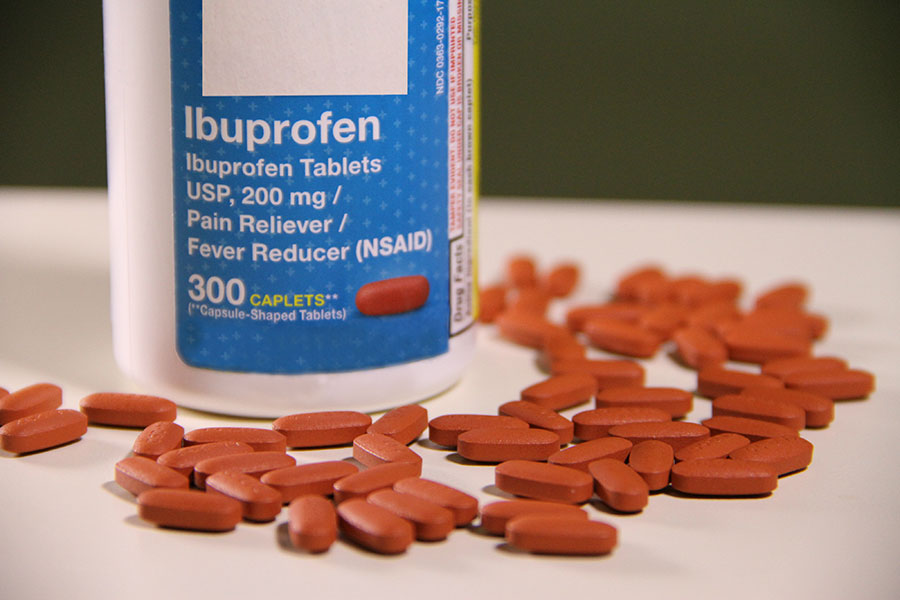Over-the-counter painkillers, such as Ibuprofen, are associated with heart diseases, according to a new research. Scientists are calling for restrictions on Ibuprofen because people think they are completely safe since they are not under regulation.
According to the researchers, Ibuprofen raises the risks of cardiac arrest by 31 percent on average, while diclofenac raises it by 50 percent. They say that these drugs should not be sold without prescriptions and that people should limit their use, no more than six Ibuprofens a day.

“Use of any NSAID was associated with a 31 percent increased risk of cardiac arrest. Diclofenac and ibuprofen were associated with a 50 percent and 31 percent increased risk, respectively. Naproxen, celecoxib, and rofecoxib were not associated with the occurrence of cardiac arrest, probably due to a low number of events,” stated the study.
Painkillers shouldn’t be sold over-the-counter
People is used to buying non-steroidal anti-inflammatory (NSAID) drugs such as Ibuprofen and Advil without prescription in grocery stores and gas stations. Precisely because of this, people tend to consume this kind of medicines with no restriction and without thinking of their side effects.
Researchers at the Copenhagen University Hospital said that there must be stricter regulations of NSAIDs. As well, they said patients must be informed about the health risks associated with this kind of painkillers, especially those patients that suffer from heart conditions.
“Allowing these drugs to be purchased without a prescription, and without any advice or restrictions, sends a message to the public that they must be safe,” Gunnar Gislason, a professor of cardiology who co-authored the study. “The findings are a stark reminder that NSAIDs are not harmless.”
Ibuprofen is typically used to calm down pain, from sports injuries to a toothache or a headache. However, just like any other drug, it also has side effects.
Ibuprofen increases blood pressure
Though previous studies had already suggested that over-the-counter painkillers are not as harmless as they look, this new research only focused on the use of NSAID among patients who were prescribed the drugs.
The ingredients of prescribed NSAID are the same, but the difference is that it contains a higher dosage than those drugs available over the counter and they are used for a longer period.
The researchers looked at about 29,000 patients in Denmark, who had suffered heart attacks between 2001 and 2010. 3,300 of them had consumed a prescribed NSAID 30 days before they had the heart attack.
According to the scientists, the link between painkillers and heart attacks is that the firsts cause platelets to build up, creating blood clots. The study also shows that over-the-counter drugs make arteries constrict and increase blood pressure.
No more than 1,200 milligrams of Ibuprofen per day
According to scientists, to avoid adverse cardiac effects from NSAID use, the daily intake of Ibuprofen should not surpass the 1,200 milligrams.
It doesn’t seem like a new regulation on these painkillers will be established any time soon. Patients with heart conditions should contact their doctors, anyways.
For example, Medsafe, New Zealand’s medical regulatory body, said it is comfortable with Ibuprofen being sold without a prescription, in spite of the new research. However, it would take a closer look to see if the last review of Ibuprofen’s safety needs to be updated.
“Medsafe’s advice for NSAIDs, including ibuprofen and diclofenac, is to take the minimum effective dose for the shortest amount of time,” said Chris James, general manager. “The data suggests there is no increased risk of myocardial infarction in doses less than or equal to 1200 mg daily,
It is important to highlight that Ibuprofen and Diclofenac, despite their worldwide recognition, proved to be more harmful than other painkillers such as Naproxen, Celecoxib, and Rofecoxib. In the UK, Diclofenac is no longer sold without a prescription. This drug has proven to raise by 50 percent the risk of a cardiovascular attack
An alternative treatment
Though these drugs are not going to be forbidden, people can contact their doctors to have an alternative treatment for pain. As well, these drugs should not be used for a long time, because they might be hiding something else. If the pain doesn’t go away or it keeps worsening, people should be checked by a doctor.
Doctors also say that people should stop taking so many painkillers, sometimes a warm bath or a walk can reduce pain. They also recommend meditation, hydration, good nutrition, and sleep. Painkillers might lead to other issues such as chronic headaches, and at the end might lose effectiveness too.
“Physiotherapy tends to be a very good next step for things like joint and muscle pain. Also, acupuncture might be good for back pain” says Dr. Sara Kayat. “There are all sorts of things that can help, or you might want to use them as an add-on so you can use less of the painkiller itself.”
Source: The Newly Day
